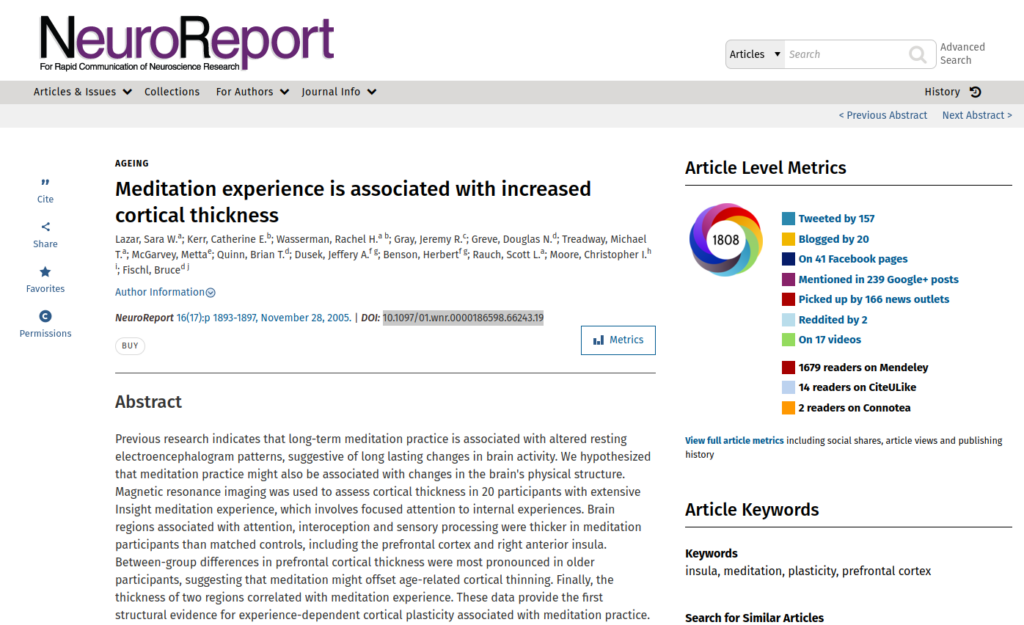Previous research indicates that long-term meditation practice is associated with altered resting electroencephalogram patterns, suggestive of long lasting changes in brain activity. We hypothesized that meditation practice might also be associated with changes in the brain’s physical structure. Magnetic resonance imaging was used to assess cortical thickness in 20 participants with extensive Insight meditation experience, which involves focused attention to internal experiences. Brain regions associated with attention, interoception and sensory processing were thicker in meditation participants than matched controls, including the prefrontal cortex and right anterior insula. Between-group differences in prefrontal cortical thickness were most pronounced in older participants, suggesting that meditation might offset age-related cortical thinning. Finally, the thickness of two regions correlated with meditation experience. These data provide the first structural evidence for experience-dependent cortical plasticity associated with meditation practice.
Meditation experience is associated with increased cortical thickness
Publication
NeuroReport
16(17):p1893-1897, November 28, 2005
Abstract
Web and Email Links
Related Listings
Journal
Neuroreport
Meditation is a conscious mental process that induces a set of integrated physiologic changes termed the relaxation response. Functional magnetic resonance imaging (fMRI) was used to identify and characterize the brain regions that are active during a simple form of meditation. Significant (p<10(-7)) signal increases were observed in the group-averaged data in the dorsolateral prefrontal and parietal cortices, hippocampus/parahippocampus, temporal lobe, pregenual anterior cingulate […]
Journal
PLOS ONE
Introduction Irritable Bowel Syndrome (IBS) and Inflammatory Bowel Disease (IBD) can profoundly affect quality of life and are influenced by stress and resiliency. The impact of mind-body interventions (MBIs) on IBS and IBD patients has not previously been examined. Methods Nineteen IBS and 29 IBD patients were enrolled in a 9-week relaxation response based mind-body group intervention (RR-MBI), focusing on elicitation of the RR and cognitive skill building. Symptom questionnaires […]
Journal
Journal of Human Stress
Human pupillary dilatation after topical instillation of phenylephrine was assessed in a prospective, randomized, controlled experiment to measure alterations in α-end-organ responsivity after regular elicitation of the relaxation response. Baseline pupillometric measurements were taken in both experimental and control subjects. The experimental subjects then practiced daily a technique that elicited the relaxation response while the control subjects sat quietly for comparable periods […]

